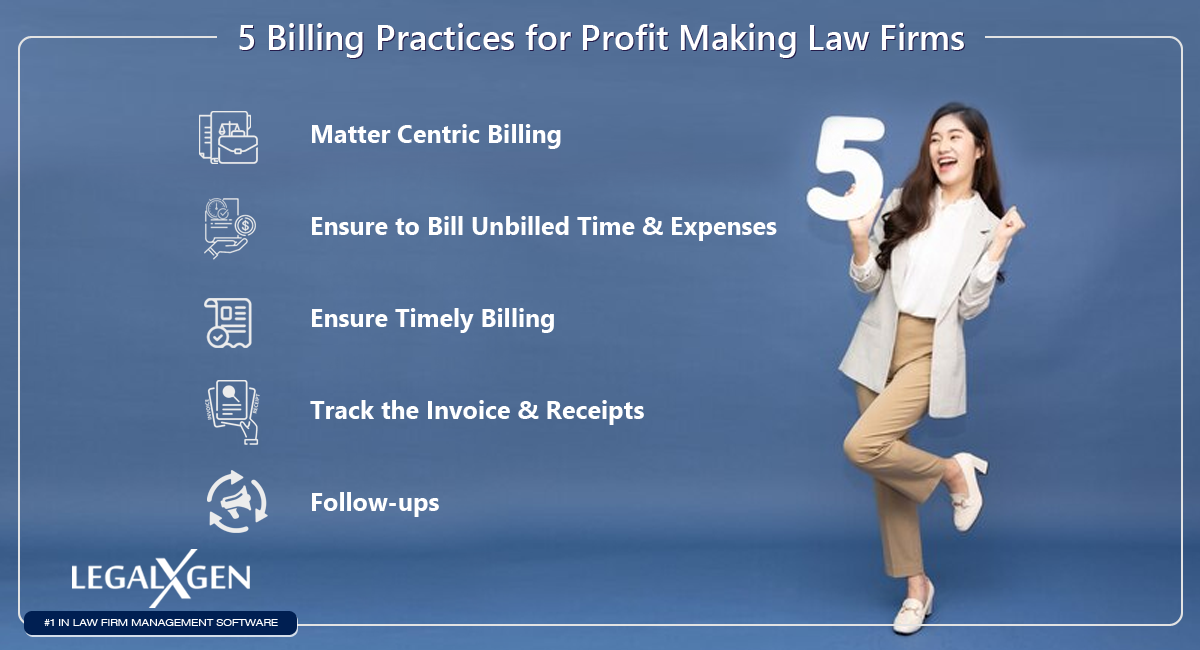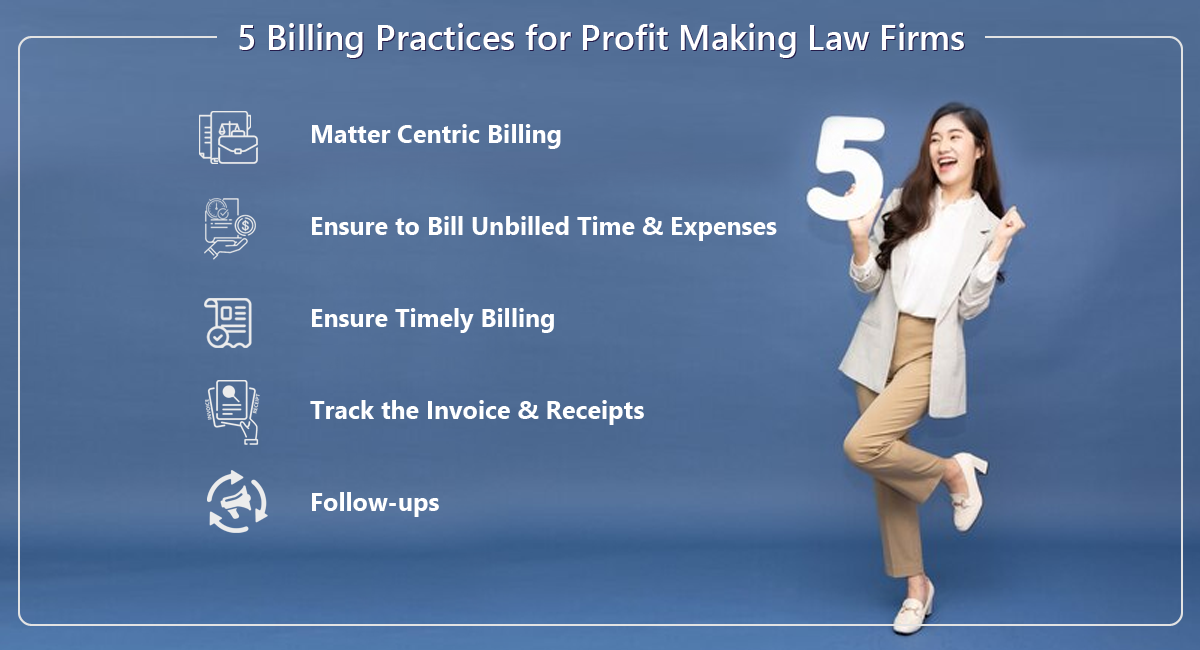

Are we on the same page if I say the key to a profitable law firm is closely related to its billing practices, though it’s not as simple as it appears?
From staying current to eliminating leakage and lost billable hours to correctly handling matter-level allocations, there’s a lot that goes into a solid billing process. Firms must take proactive actions to build systems and billing best practices that support healthy cash flow and high earnings in order to have a solid bottom line.
So, why do we need to understand the importance of billing practices?
Billing is an essential component of running a successful legal business. It’s how you get paid for your services, keep track of your office expenses, pay your employees, and recoup your losses. If your billing techniques are improper, your firm’s survival may be risked. That is why proper billing procedures must be designed and deployed.
Time and money are the two most valuable assets of a law firm. As a result, it’s critical to have a clear, uniform billing strategy in place for your law practice that could provide something for lawyers and workers to refer to and keep everyone in the loop.
Therefore, keep your numbers out of the red, let me take you to the 5 best billing practices that will aid you go a long way in your legal venture.
- Matter Centric Billing
When your law firm sends a billing statement to any of your clients, the very first thing they look for is simply a brief of the work that has been accomplished on their matter.
Your invoice is one of the many ways you may communicate the value of your services to your clients. Your invoices should be easy and unambiguous, which means they should be simple for your customers to grasp. The creation of matter-centric invoices ensures the transparency of task progress.
Since matters represent the heart of your work, it makes sense to organize things around them. This means that all records are related to a matter in a matter-centric manner. This cuts down on the time it takes for the consumer to comprehend the billing statement. Furthermore, it enables clients to quickly adapt to it, grasp the status of their matters, and navigate their way around them. In most circumstances, a matter-centric approach has shown to be a win-win situation.
Organizing your resources and workflows in a matter-centric manner is not only simple to implement, but it also feels natural. It lays out clear instructions on how things should be done. - Ensure you Bill Unbilled Time & Expenses
Time is money, so it’s a must to have a track of the time and expenses that are billed and yet to be billed. Law firms incur lots of expenses from their pocket on behalf of their clients. Many times, these expenses are missed to be billed, obviously, that’s going to cause revenue leakage to the firm. So, it’s important that both the time value and expenses incurred are billed to the client timely.
While reviewing the billing sheet, clients constantly look for the financial value of the work completed by their advocates. An accurate bill communicates to your client your firm’s professionalism and trustworthiness. Your client relies on you to keep accurate records of the time spent on his matter and wish to be ensured that each bill accurately reflects the work completed on the matter and the agreed-upon compensation.
If he receives an exorbitant charge, his faith in your company and its honesty will be immediately eroded. Inaccurate billing not only hampers your cash line but will definitely affect your attorney-client relationship. - Ensure you’re Billing on Time
No doubt effective billing practices are one of the cornerstones of a successful law firm so is billing on time. Late bills send the wrong message to clients.
Whether you like it or not, being on time is important. It allows others to see how you see them and how you see your company. Punctuality establishes credibility and dependability. When everyone is on time, it boosts morale and productivity in the firm.
Performing the legal work on time is important, it’s what comes after the work that keeps your firm alive. One of the most crucial tools for growth is the money you bring into your company. You can’t do much without it, in fact. From paying your bills to purchasing updated equipment for your office and making payroll, you need money.
Billing on time ensures you have the necessary cash flow for the smooth running of your business. Making timeliness a habit has numerous benefits for your legal business. - Keep a Track on the Invoices & Receipts
FYI, since invoices and receipts are issued at different phases of the process, they serve different objectives. A receipt is sent after the payment has been received, whereas an invoice is issued before the customer sends the payment. The invoice serves as a payment request, while the receipt serves as proof of payment.
To track expenses and revenue is one of the essential components of accounting to keep proper track of invoices and receipts as it ensures the firm as being certifiable, transparent, and concise.
For every law firm, it is one of the best practices to maintain invoices and tracking to ensure timely payment from the clients as even minor differences can have a significant influence on your company’s trust and authenticity. For this matter, a comprehensive legal time tracking and billing tool can go a long way in helping you ensure accuracy. - Follow-ups
In addition to proper billing, it’s necessary to develop a collection plan that allows you and your client to avoid frustration.
Regular follow-up with the client is what comes into play to make all the above points work.
Imagine you have made a client and matter centric bill, you have a habit of sending billing statements on time and you track and maintain invoices and receipts, but what if there are several pending payments? How long do you think your law firm will sustain in that way?
Regular follow-ups and the timely remainder is an integral part of the billing process. To set up reminders for when you send out your first invoice to a client, you can employ the automated invoice reminders tool. If the invoice is not paid, the client will receive a follow-up invoice notifying them that the billed amount is still outstanding to them. The system will take care of everything, guaranteeing that your law company is paid as per the schedule.
Remember that billing is a significant stage for any law firm: it’s how you get paid, it’s how you make an impression, and it may even get you in trouble if done incorrectly!
With LegalxGen you can autopilot your billing practices. Want to know how? Take FREE DEMO now.

Market Research Analyst with a Master’s in Marketing and Analytical Experience.
 English
English French
French German
German